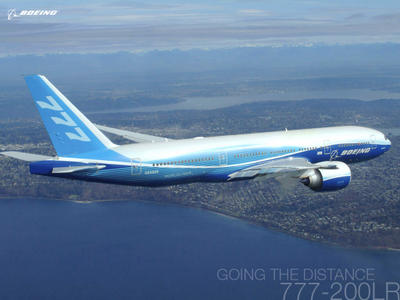Wednesday, September 28, 2005
Boeing 777-200LR
 17.446km、補助の燃料タンクを利用し、内装を軽いものにすれば18,500kmを飛ぶ事のできる旅客機が完成します。オーストラリアからイギリスのロンドンやアメリカのニューヨークまで直行で行けるようになります。シドニーからロンドンは、18時間以上もしくは20時間以上の飛行になると思いますが、オーストラリアのみなさんは乗りたいと思いますか。たとえば、シドニーキングスフォード・スミス国際空港からロンドンヒースロー空港までの約19時間の間一度も降りる事ができません。ロンドンに着く頃は髪はボサボサ、お肌はカサカサになっているでしょう。それともシンガポールや香港で一度降りてからロンドンに向かいたいですか。いずれにせよ、二百年前から考えれば楽ですね。きっと。
17.446km、補助の燃料タンクを利用し、内装を軽いものにすれば18,500kmを飛ぶ事のできる旅客機が完成します。オーストラリアからイギリスのロンドンやアメリカのニューヨークまで直行で行けるようになります。シドニーからロンドンは、18時間以上もしくは20時間以上の飛行になると思いますが、オーストラリアのみなさんは乗りたいと思いますか。たとえば、シドニーキングスフォード・スミス国際空港からロンドンヒースロー空港までの約19時間の間一度も降りる事ができません。ロンドンに着く頃は髪はボサボサ、お肌はカサカサになっているでしょう。それともシンガポールや香港で一度降りてからロンドンに向かいたいですか。いずれにせよ、二百年前から考えれば楽ですね。きっと。芳郎
A passenger plane has been completed which can travel 17,446 km using an auxiliary fuel tank, and 18,500 km if the interior upholstery is lightened. This means that you will be able to catch direct flights from Australia to London in England, or to New York in America. I think that from Sydney to London, it takes over 18 or 20 hours of flight time, but do you really think that everyone in Australia is going to want to take such a flight?
For example, for the whole 19 hours or so it takes from Sydney's Kingsford Smith International Airport to London's Heathrow Airport, you wouldn't even be able to get off once. By the time you arrived in London, your hair would be all screwed up, and your skin all crackly. Wouldn't you rather get off once in Singapore or Hong Kong, and then head over to London.
At any rate, if you compare it to two hundred years ago, it's a breeze, for sure.
Yoshiro
Translated by Mathieu
Comments:
<< Home
Translation Notes:
*The sentences in English seem odd with naming the countries that London and New York are in. Everyone pretty much knows these.
*I split the English version into multiple paragraphs. Perhaps do the same with Japanese version??
*'bosa-bosa' and 'kasa-kasa' are onomatopoeic words that aren't easily translated into English. Made them 'screwed up' and 'crackly', because they convey semantically the meaning, and also the casual way of speech, and also with their sounds they are similar.
*I am noticing a trend with my translating that I am taking liberties with adding a word that is not in the base language but are necessary to convey the message clearly, and the meaning. I think this is normal, and acceptable with nonchalant translations such as these.
Post a Comment
*The sentences in English seem odd with naming the countries that London and New York are in. Everyone pretty much knows these.
*I split the English version into multiple paragraphs. Perhaps do the same with Japanese version??
*'bosa-bosa' and 'kasa-kasa' are onomatopoeic words that aren't easily translated into English. Made them 'screwed up' and 'crackly', because they convey semantically the meaning, and also the casual way of speech, and also with their sounds they are similar.
*I am noticing a trend with my translating that I am taking liberties with adding a word that is not in the base language but are necessary to convey the message clearly, and the meaning. I think this is normal, and acceptable with nonchalant translations such as these.
<< Home
